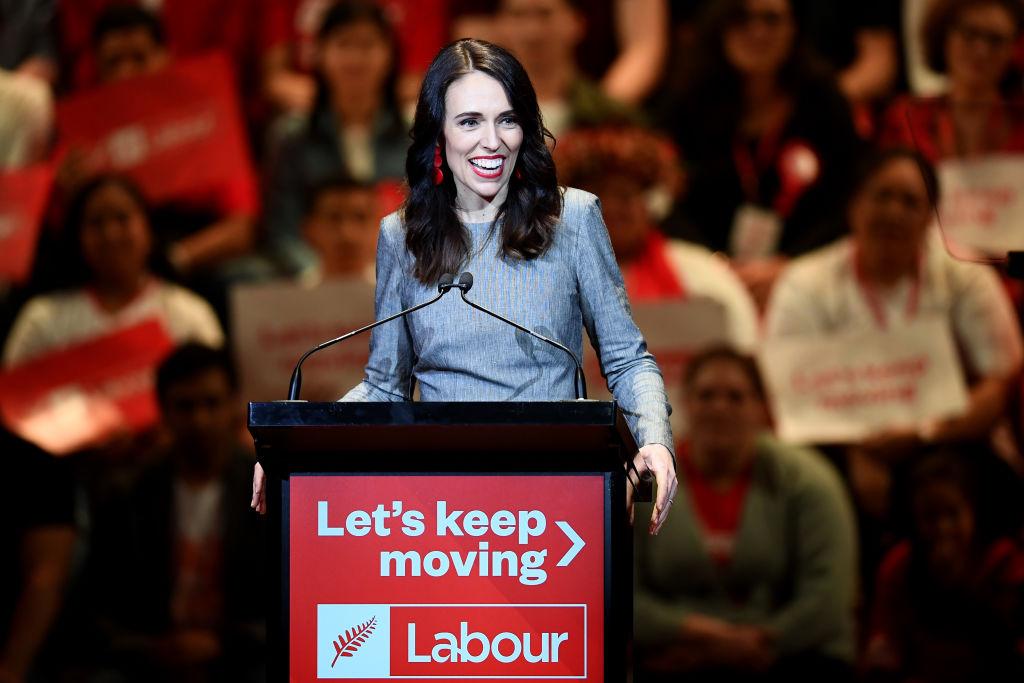Ardern and Biden victories would be a shot in the arm for the centre-left
Posted By Mick McNeill on August 26, 2020 @ 11:29

An emphatic Labour Party victory in New Zealand in October, followed by a convincing Democratic Party win in the United States in November, would be a symbolic morale boost for the ‘Anglosphere’ centre-left after a period marked by fallouts from Brexit, the 2016 Donald Trump upset and the 2019 Scott Morrison and Boris Johnson triumphs.
Centre-left parties in Australia, Canada, New Zealand, the UK and the US have long followed ideological, policy and campaign developments affecting their counterparts. Increased global connectivity has intensified this reciprocal scrutiny. It has been the same on the centre-right.
In the 1980s and early 1990s, UK Labour figures like Tony Blair looked to the Bob Hawke Labor government for inspiration as it split between its hard-left and social-democratic tendencies during Margaret Thatcher’s decade of dominance. UK Labour’s 1983 manifesto, which pledged unilateral nuclear disarmament (while maintaining support for NATO), was described by one of its MPs as ‘the longest suicide note in history’.
Meanwhile, the Hawke government maintained Australian support for the US alliance, obtained ‘full knowledge and concurrence’ for the Pine Gap facility, and even managed to walk away from a commitment to use Australian facilities to test MX missiles (with a little help from Hawke’s Republican mate George Schultz).
Across the Tasman, the David Lange government’s ‘nuclear-free’ policy, strongly supported by the NZ Labour left, precipitated the US’s suspension of its ANZUS commitments to New Zealand in 1986, but with no major long-term repercussions: New Zealand has remained a member of the Five Eyes intelligence network and continues to participate in joint military exercises with the US and Australia. The Hawke government resisted pressure from the left to adopt a similar nuclear policy.
By the late 1990s, the ALP right was looking to Blair’s ‘third way’ and the Clinton administration’s ‘triangulation’ strategy for lessons on how to peel the ‘Howard battlers’ from the Coalition. That effort was complicated when Blair committed the UK to the US-led invasion of Iraq in 2003, putting him at odds with the ALP. The tension was politely on display when Blair visited Australia in 2006; his old friend Kim Beazley was opposition leader. (One of the big ‘what ifs’ is whether the Trump administration would have reduced intelligence sharing with the UK if Jeremy Corbyn had won last year’s election and what impact that might have had on Australia.)
But what would a Jacinda Ardern, Joe Biden double mean in practical terms for Australia’s national interest and the centre-right Morrison government? As with Richard Nixon’s 1960s period in the political wilderness, Biden’s views on China have presumably evolved as the strategic outlook has changed. In his July 2016 speech in Sydney, Biden remarked:
We’ve made important progress to center our growing relationship with China in enhanced cooperation and responsible competition … I’ve spent a great deal of time with President Xi, a lot of time. I’ve travelled with him five days in China. I’ve probably spent more time with him alone than any world leader.
Four years later, much has changed.
If Biden wins, expect a form of ‘triangulation’ on the global stage. While he would put greater emphasis than Trump has on not offending allies and courting ‘respectable opinion’, there would be more continuity than change. The full-court pushback against China would continue, Five Eyes coordination would keep broadening beyond its traditional remit, and the US military presence in northern Australia would increase, notably the number of US marines.
Covid-19 has further slanted the political balance in favour of the US taking a hard line on trade with China, although a big trade deal is more likely than not during the next term under Biden or Trump. As president, Biden would come under pressure from his party’s left to use tariffs and trade agreements as a means of furthering global action on climate change; Biden’s climate package is the most ambitious ever offered by a US presidential candidate. China would test a Biden administration’s mettle early, possibly with Taiwan’s offshore islands (Matsu and Quemoy were issues in the 1960 presidential election debates). This would again put Australia’s ANZUS obligations under the spotlight.
As for New Zealand, a Biden presidency would give Ardern more domestic political room to increase strategic cooperation with the US. An updated ANZUS is not inconceivable. Ardern’s global standing and domestic political dominance sometimes overshadow the fact that she leads a minority government whose foreign and defence ministers are members of the right-wing New Zealand First Party, which may be headed for electoral oblivion if the polls are to be believed. Post-election, Ardern will be in a stronger position to put her unique stamp on New Zealand strategic policy. Wily New Zealand diplomats would try to leverage the Biden–Ardern ideological partnership while quietly playing good cop to Canberra’s bad cop with Beijing in pursuing New Zealand’s economic and trade interests.
Article printed from The Strategist: https://aspistrategist.ru
URL to article: /ardern-and-biden-victories-would-be-a-shot-in-the-arm-for-the-centre-left/
Click here to print.